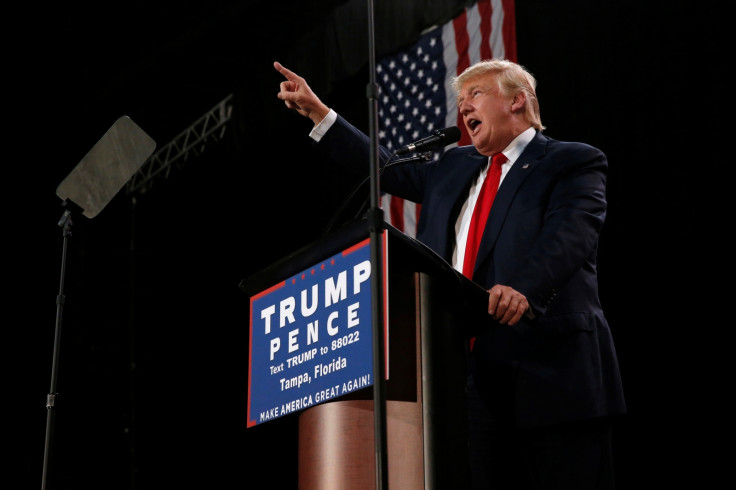Trump says Obama should be investigated over Clinton's email server after latest WikiLeaks dump
'We need to clean this up,' a Clinton aide wrote, according to an email exchange published by WikiLeaks.

Republican presidential nominee Donald Trump has called for an investigation into President Barack Obama after new revelations from WikiLeaks suggested that Obama could have had prior knowledge of Hillary Clinton's use of a private email server. The latest WikiLeaks email dump published on Tuesday (25 October) from the private account of Clinton's campaign chairman, John Podesta, showed her senior aides knew Obama had received emails from Clinton's private email address, suggesting that he could have known about the email server before the public.
In a March 2015 interview, Obama said he had learned about Clinton's use of a private email server during her time as secretary of state "the same time everybody else learned it, through news reports".
"We need to clean this up - he has emails from her - they do not say state.gov," Cheryl D Mills, a top Clinton aide, wrote to Podesta on 7 March, 2015.
On 9 March, 2015, Obama's spokesman Josh Earnest clarified that Obama knew about the email address, but "was not aware of the details of how that email address and that server had been set up".
Clinton's campaign has not yet verified or confirmed the authenticity of the series of hacked emails published by WikiLeaks.
Trump told Reuters reporters on Tuesday that the latest revelations warrant a separate investigation into Obama as well.
"Well, I now see why the president stuck up for Hillary, because he didn't want to be dragged into it... Because he knew all about her private server," Trump said. "This is a big thing. This means he has to be investigated."
At a rally in Sanford, Florida on Tuesday, Trump told a crowd of around 10,000 supporters: "As you may remember, President Obama claimed to have no knowledge whatsoever of Hillary Clinton's illegal email server. This guy. He's as bad as she is.
"Now I understand why he pushed her; because he didn't want to get caught up in the big lie. He's caught up now, folks. We have to investigate the investigation."
The controversy over Clinton's private email account used to conduct State Department business has continued to be a source of criticism during the Democratic candidate's presidential campaign. The issue prompted an FBI investigation and other legal challenges regarding cybersecurity and national security risks of using a private email account for official State Department business.
During the summer, the FBI announced that it will not advise the Justice Department to move forward with criminal charges against Clinton.
The Trump campaign recently claimed that a previously released batch of hacked emails released by WikiLeaks showed that Clinton's campaign was in "collusion" with the US Department of Justice.
On Tuesday, Earnest reiterated that Obama's original comment about not knowing the circumstances behind Clinton's private email server was accurate.
"What the president said was an entirely factual response to Mr Plante's question," Earnest said. "I recognize that some of the president's critics have attempted to construct some type of conspiracy about the communication between the president and the secretary of state, but they've failed to put forward a conspiracy that withstands any scrutiny, so I guess they're back to recycling thoroughly debunked conspiracies."
Over the last few weeks, whistle-blowing outfit WikiLeaks has continued to publish batches of 'Podesta emails', exposing the inner workings of the Clinton camp. Clinton's campaign has accused Russia of directing the hacks into the Democratic National Committee's computer systems and Podesta's emails.
Earlier in October, the US officially blamed Russia for the recent cyberattacks targeting US political organisations, accusing them of attempting to meddle in the November election. Russian president Vladimir Putin brushed off the allegations and threats of retaliation as campaign rhetoric. The Russian Foreign Ministry criticised the Obama administration for destroying relations with Moscow through "Russophobic propaganda".
© Copyright IBTimes 2025. All rights reserved.





















